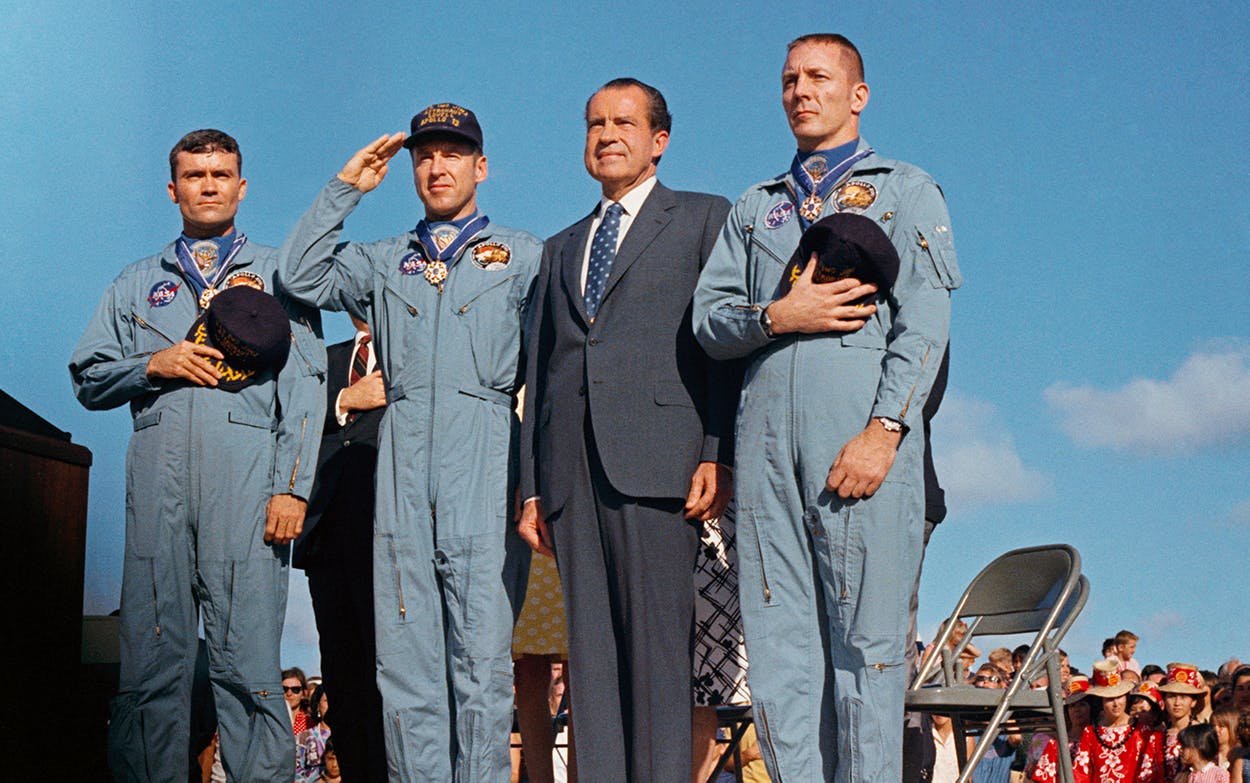The Road to Houston
By Al Reinert
From “So Long, Cosmic Cowboys,” originally published in March 1973
Back in 1961, Lyndon Johnson, then vice president and chairman of the Space Council, and Houston congressman Albert Thomas, chairman, as chance would have it, of the very same House Appropriations subcommittee that passed on the NASA budget, were both laboring on behalf of a Houston site, lobbying the members of NASA’s Site Selection Team who were searching about for a logical (or, barring that, profitable) location for their soon-to-be-funded Manned Spacecraft Center. “The road to the Moon,” Thomas reportedly told NASA administrator James Webb, “lies through Houston.” An unlikely trajectory in most contexts but in the halls of Congress, where Thomas was right on. Houston it would be.
Longing for Luna
By Al Reinert
From “Moon Struck,” originally published in July 1979
They had all seen the moon before, of course. Indeed, there was never a druid more obsessed with the moon than the astronauts in the Apollo program; no fertility cult had ever watched it with such care and close attention, or with greater devotion. It was the moon alone that gave meaning to the lives of Apollo astronauts, so when they saw it at night they must have genuinely yearned for it.
The Price of Competence
By Al Reinert
From “Tiptoeing on the Ocean of Storms,” originally published in November 1984
The flight of Apollo 12 was 100 percent successful in the view of Mission Control: all objectives met, everything according to plan. The crew safely splashed down 10 days, 4 hours, and 36 minutes after blastoff, a mere 3.5 nautical miles from their prime recovery ship. They were welcomed home, appropriately feted, decorated by the president. Apollo 12 was only the second lunar-landing flight, but already the routine was becoming obvious. Only the government could send someone to the moon and back and make it boring.
One Brief, Shining Moment
By Skip Hollandsworth
From “Shooting the Moon,” originally published in July 1995
The film [Apollo 13] will give others the chance to recall what already feels like an archaic period of American life—a golden age when a group of brilliant engineers and astronauts, living in those raw, new neighborhoods of Clear Lake, were gripped with a grandiose fever to get to the moon. It was a time when technology meant something other than the internet or a five-hundred-channel TV set. It was a time when the word “Houston” exerted a thrilling force in people’s lives. In a strange way, despite a war in Vietnam and race riots at home, it was a time when some of us believed that a brave new world was at hand.
- More About:
- Texas History
- Space










